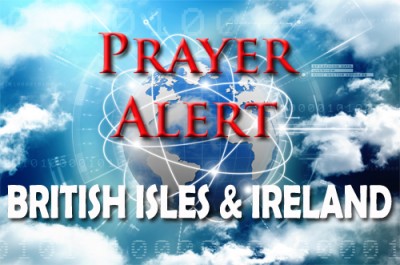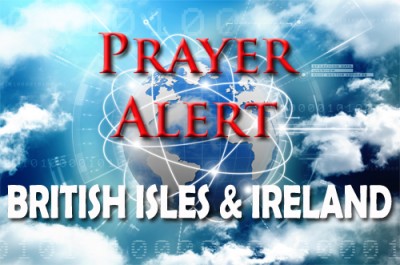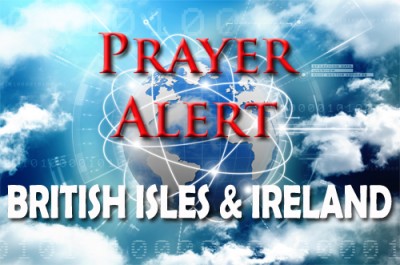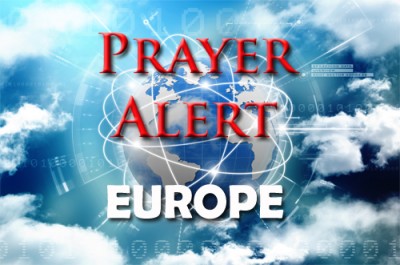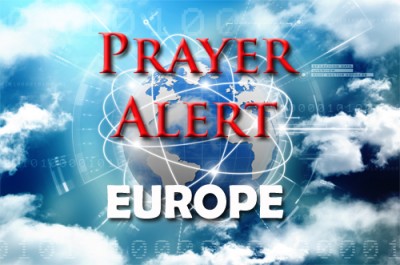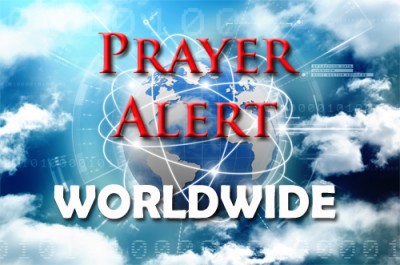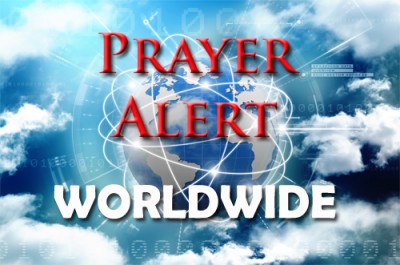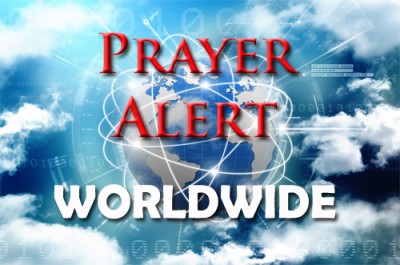Pray for our police
13 Oct 2017‘For the past ten years I’ve been a police response officer. A colleague, summing up our lives, recently wrote: “Last week I was hit, spat at and punched. There wasn't one day that I ate my lunch. I held a man's hand who had just lost his wife. I took a child from his father who was wielding a knife. I pulled a girl who was mentally ill off a bridge. I locked up a worker who had nicked from the till. I persuaded a battered woman finally to speak - after seeing her every day, week after week. This is our job and we are all proud to do it.” We are proud. And that’s why we work earlies, lates and night shifts. But I want to challenge a policy that puts the public and the police at risk. It’s called “single crewing” and it means that officers like me are sent out on jobs alone and face being attacked. Our team of 24 will have three double-crewed cars during most shifts: the rest of us will be on our own. That’s why I’ve started a petition calling on Amber Rudd to stop this.’
Northern Ireland: pray for a better debate
13 Oct 2017There are reports of a change of tone between the Democratic Unionist Party (DUP) and Sinn Féin; however, at present the prospect of a Northern Ireland executive and assembly being re-established remains elusive. The secretary of state has warned that Northern Ireland is on a glide path to the British government stepping in. While ‘stepping in’ remains vague enough to hold off direct rule by British ministers for now, options are running out. Further rounds of budgets will need to be signed off, and key decisions around health, education and capital investment cannot be postponed indefinitely. It is nearly nine months since the executive was brought down.
Rachel's daughter was raped by a boy at her school. He was arrested, bailed, and put back into lessons, alongside his victim, the following day. ‘A rape victim is already in a terrible place, but to be expected to be back in the same space as the rapist is terrible,’ Rachel said. The Government is writing interim guidelines for schools to prevent such things happening, but campaigners say it is taking too long. Rachel said that the school seemed to have no policy in place, and dealt with the situation ‘extremely badly’. She had to instigate a meeting and, despite her efforts, they did not prioritise her daughter's needs but were keen to protect her assailant’s rights to education. Over 5,500 sex crimes in UK schools were reported in the last three years, including nearly 4,000 physical assaults and 600+ rapes. See
Catalonia's drive to separate from Spain is rekindling dreams of independence in ethnic pockets across the Balkans - a dangerous ambition in a region where nationalist violence claimed tens of thousands of lives in the 1990s. Among ethnic Albanians in southern Serbia and the Serbs of Republika Srpska, in the wake of the ‘banned’ Catalan referendum, separatist leaders are asking the same question: ‘Why don't we do the same?’ On the election day, graffiti of Catalan flags appeared several towns in the Serbian province of Vojvodina, along with the claim that ‘Vojvodina = Catalonia’. Meanwhile, in the southern Bosnian town of Mostar, a giant banner appeared near the cathedral showing the flags of Catalonia and Herceg-Bosna, the self-styled Croat entity, reading ‘Good luck. We are the next.’ Local media are saying, ‘The fact that one region (Kosovo) managed to secure independence has emboldened many like-minded leaders in the region’.
Over 250 supporters of opposition leader Aleksei Navalny were arrested as they held peaceful protests in eighty cities across Russia on Putin’s birthday. They were demanding that Mr Navalny be allowed to stand in the March 2018 presidential elections. He is currently jailed for organising public meetings, and the authorities say he cannot stand in the elections because of a suspended sentence. Amnesty International said, ‘The Russian authorities must immediately and unconditionally release scores of peaceful protesters detained, and investigate allegations that the police used abusive force. The Kremlin’s intent is to choke the life out of the protest movement, but it has also become clear that this reproachful goal cannot be achieved. Peaceful protest is a right, and many people in Russia want to exercise that right.’ See:
Global: pray for Hindus 8-22 October
13 Oct 2017Hinduism is the third largest religion in the world. The majority of Hindus have never heard the name of Jesus, and less than 2% of Protestant missionaries are serving among them. Centred mostly in India, Hinduism is much more than a religion; it is a way of life, a cultural identity. Acts of violence and intimidation by militant Hindus against other religions are on the rise, particularly against Christians. Barriers to the Gospel are many. But prayer opens doors! Join Christians around the world praying for Hindus between 8 and 22 October . During this time, Hindus celebrate one of their most important holidays, the Festival of Lights (Diwali). Despite candles and fireworks, millions remain separated from the only true source of light - Jesus Christ. Hindus are coming to Christ. In one instance an entire village turned to Christ after hearing God’s Word preached in their language!
For years, Azerbaijan has been riding the line for years between democracy and fiefdom. Its New Azerbaijan Party is accused of authoritarianism and bribery. It imprisons corruption-busting journalists and human rights advocates. Friction with neighbouring Armenia was heightened last year, with bombings and continuous calls to war. Their dispute is over Nagorno-Karabakh, an Armenian enclave within Azeri territory. Oil export revenues have aided the Azeri population, elevating living standards and increasing military strength; but poverty and corruption plague the nation. Although Azerbaijan fell off the 2017 World Watch List of persecuted Christians, that is not because restrictions have eased. Christian detentions continue; they face harassment and intimidation, and many are given large fines for meeting as churches or giving out Bibles. Only 0.22% of the people are evangelical Christians. Azerbaijan was one of the first republics in the Soviet Union to face the problem of refugees. There are 618,137 refugees and internally displaced persons in the country.
‘Children are visibly traumatised and distressed, and many have stopped speaking,’ said a Save the Children team member in Bangladesh. Displaced children arriving there are exhibiting signs of trauma such as nightmares and loss of speech after witnessing horrific violence, and are in urgent need of psychological and emotional support. As well as providing food, water and shelter to more than half a million, charities have identified psychological and emotional support services as a critical need. Most of those arriving from Myanmar are women and girls: some have been raped and sexually abused. Hundreds of children are separated from their families, and report having witnessed violence first hand. Their enormous psychosocial needs are obvious to anyone walking through the camps and makeshift settlements.
